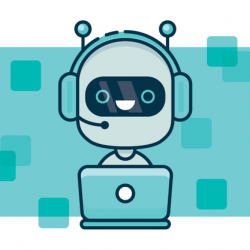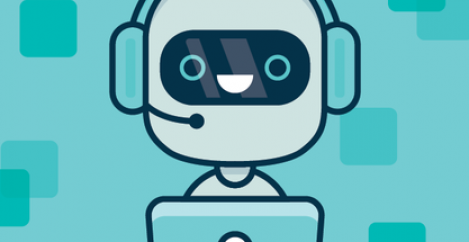April 3, 2018
Nearly half of large organisations will adopt artificial intelligence in the workplace by 2019
 Chatbots and voice assistants powered by artificial intelligence are starting to gain traction in the workplace of large organisations, according to a report from tech firm Spiceworks. The report, based on a survey of 500 IT professionals in organisations across North America and Europe, found that within the next 12 months, 40 percent of large businesses – those with more than 500 employees – expect to implement one or more intelligent assistants or AI chatbots on company-owned devices, compared to 25 percent of mid-size companies and 27 percent of small businesses. The findings indicate that although adoption is on the rise, some organisations are holding back due to a lack of use cases in the workplace and privacy concerns.
Chatbots and voice assistants powered by artificial intelligence are starting to gain traction in the workplace of large organisations, according to a report from tech firm Spiceworks. The report, based on a survey of 500 IT professionals in organisations across North America and Europe, found that within the next 12 months, 40 percent of large businesses – those with more than 500 employees – expect to implement one or more intelligent assistants or AI chatbots on company-owned devices, compared to 25 percent of mid-size companies and 27 percent of small businesses. The findings indicate that although adoption is on the rise, some organisations are holding back due to a lack of use cases in the workplace and privacy concerns.
Across all company sizes, Microsoft Cortana is the most commonly used intelligent assistant in the workplace, likely due to its native integration into Windows 10. Among organisations that have implemented intelligent assistants or chatbots on company-owned devices and services, the results show 49 percent are currently using Microsoft Cortana for work-related tasks, followed closely by Apple Siri at 47 percent. Additionally, 23 percent of organisations are using Google Assistant and 13 percent are using Amazon Alexa. Looking specifically at AI chatbots, the results show 14 percent of organisations are using AI chatbots integrated in collaboration tools (e.g., Microsoft Teams, Slack), while only 2 percent of organisations have custom-built AI chatbots. However, an additional 10 percent plan to build one in the next 12 months.
One in four organisations use AI chatbots and assistants to support team collaboration
Among companies using AI chatbots and intelligent assistants, 46 percent are using them for voice to text dictation, 26 percent are using them to support team collaboration, and 24 percent are using them for employee calendar management. Additionally, 14 percent are using AI chatbots and assistants for customer service and 13 percent are using them for IT help desk management.
In terms of which departments are supported by AI chatbots and assistants, the results show 53 percent of organisations use them within their IT department, 23 percent use them to support their administrative department, and 20 percent use them to support the customer service department. Sixteen percent of organisations are also using AI chatbots and assistants in their sales and marketing departments.
Among organisations that are not using AI chatbots or intelligent assistants, the results show 50 percent have not implemented them due to a lack of use cases in the workplace, while 29 percent note security and privacy concerns and 25 percent are holding back due to the cost.
IT professionals believe AI will help automate mundane tasks rather than replace jobs
Although 40 percent of IT professionals believe AI can replace entry-level jobs that don’t require human creativity, they feel relatively secure when it comes to their own jobs. Only 17 percent of IT professionals believe AI will put IT jobs at risk. In fact, 76 percent believe AI will help automate mundane tasks and enable more time to focus on strategic IT initiatives. On average, IT professionals believe 19 percent of their current daily tasks can be automated via AI and intelligent automation.
However, despite the rising adoption of AI, only 20 percent of IT professionals believe their organisation has the proper skills, talent, and resources to implement and support AI technology. The study also revealed only 5 percent of IT professionals believe their organisation values AI skillsets and experience when making hiring decisions.
















